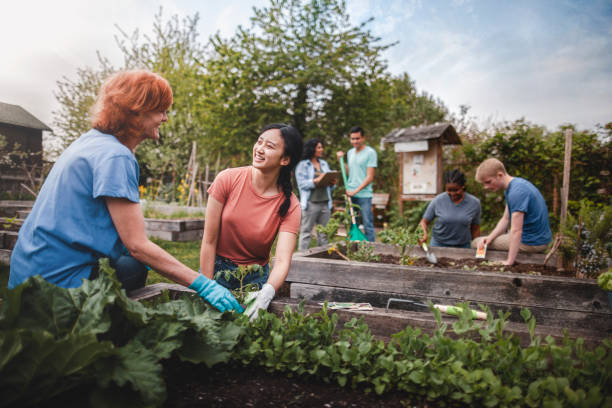"Unmasking the Hidden Health Potential of Urban Gardening"
The modern urban jungle is a whirlwind of bustling streets, towering skyscrapers, and endless noise. But amidst the hustle and bustle, an unexpected wellness revolution is taking root. Urban gardening, once a humble hobby, is emerging as a powerful tool for health and wellness, with a wealth of scientific evidence supporting its benefits. But what exactly is urban gardening, and how does it promote health and well-being? Let's delve into its green depths.

The Genesis of Urban Gardening
The concept of urban gardening is not new. Throughout history, city dwellers have cultivated plants in whatever spaces they could find, from the ancient Hanging Gardens of Babylon to the medieval kitchen gardens. However, the modern urban gardening movement sprang from the environmental awareness of the 1970s and has gained momentum with the growing emphasis on sustainability, local food systems, and mental health.
The Green Prescription: Urban Gardening and Health
Scientific research is unearthing a myriad of health benefits associated with urban gardening. A study published in the Journal of Public Health reported that urban gardening can help reduce stress, increase physical activity, and improve mental health. Moreover, growing your own food can lead to better dietary habits by promoting the consumption of fresh, organic fruits and vegetables.
The Science Behind the Soil: Understanding the Benefits
The therapeutic effect of urban gardening can be attributed to a number of factors. Firstly, physical activity involved in gardening can serve as a moderate-intensity workout, contributing to cardiovascular health and overall fitness. Secondly, the process of nurturing plants can instill a sense of accomplishment, fostering self-esteem and well-being. Lastly and importantly, exposure to green spaces has been shown to reduce stress and promote relaxation, offering a tranquil sanctuary in the heart of the city.
Urban Gardening: Not Just Roses and Radishes
Urban gardening is more than just planting roses and radishes. It is a complex practice that can sometimes pose challenges. Limited space, poor soil quality, and environmental pollution can create obstacles for urban gardeners. However, with innovative techniques like vertical gardening, container gardening, and hydroponics, these challenges can be overcome. The key lies in understanding your urban environment and adapting your gardening practices accordingly.
The Road Ahead: The Future of Urban Gardening
The future of urban gardening looks promising, with city planners increasingly recognizing its potential as a tool for improving public health, promoting community cohesion, and mitigating the effects of climate change. As urban gardening continues to grow, so does our understanding of its profound health benefits.
Fresh Insights from the Field
- Urban gardening can help improve air quality by filtering out pollutants.
- Community gardens can foster social connections and community cohesion.
- Gardening can serve as a form of mindfulness, bringing one’s attention to the present moment.
- Certain plants can help repel pests naturally, reducing the need for harmful pesticides.
In conclusion, urban gardening is an innovative wellness trend that combines physical, mental, and nutritional health. With its roots in ancient practices and its branches reaching out to modern health issues, it offers a refreshing solution to the health challenges of urban life. By fostering a connection with nature, promoting physical activity, and providing fresh, nutritious food, urban gardening truly embodies the essence of holistic health and well-being. So, why not grab a shovel and start digging into this green revolution?






